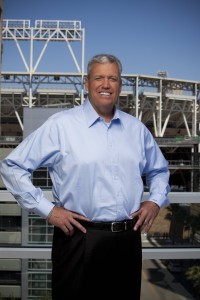The makers of the Lap-Band made a courageous decision – removing the names of surgeons from their website who do not provide the follow up that is needed for the operation.
The Lap-Band was the most common weight loss operation shortly after its introduction to the US market in 2001. Many surgeons flocked to courses to learn how to place the band, but then some issues came up.
Patients were not having the success as other operations, losing weight slower. Then others were having difficulty with the bands slipping, requiring further operations. Reports came out of institutions that had done few bands but had removed more. Some surgeons, who had not done many bands, advocated not doing the procedure at all.
It turns out the issues were related to after-care – that is, teaching people how to use the device, and taking the time to meet with patients following surgery. Those surgeons who saw patients frequently after surgery had better results, fewer re-operations, and more weight loss than those who saw patients infrequently. How often – as much as once a month after surgery for the first year.
‘Surgeons like to do surgery, but they don’t always like to follow up patients after surgery,” one of the senior executives of Lap-Band reported.
So they did something that most in marketing would find counterintuitive. They started to remove surgeons from their surgeon locator on http://lapband.com. They went from over 2000 surgeons to less than 450 surgeons.
The makers of the Lap-Band found surgeons who liked to follow up patients, adjust their bands, talk to them about lifestyle had fewer re-operations.
“We use to want to teach as many surgeons as we could to do the band and expand our position in the marketplace. Many of our surgeons who loved the band told us that we needed to focus on surgeons who provided aftercare. That if surgeons didn’t take care of people after the device was placed there would be difficulty- they were right. So over the last year we have been working to identify those surgeons who care about the band and weight loss lifestyle, and removing those who don’t.”
Along the way they discovered that a number of surgeons who were on the lap-band surgical locator had stopped doing bands, and would even, in their seminar, steer patients to other operations such as the gastric sleeve, RNY gastric bypass, or duodenal switch. All operations that required far less after-care, less time from the surgeon or the office staff.
“We were driving patients to surgeons who were not providing after care for the lap-band, but also advocating other operations instead.”
“We think that if lifestyle isn’t a focus the band will not work well, nor will other weight loss operations,” a senior executive from Allergan (current owners of the Lap-Band).
“More operations happened when surgeons were not providing the care, or from people who went to other countries for the band and didn’t get follow up.”
The move has not gone unnoticed. “We have people who complained that our website didn’t provide them with enough patients, and now they complain that we have removed them from our website.”
What is more important is that lap-band.com is working on providing a service to direct previous band patients to surgeons who are more interested in taking care of them. “We think if you have had a band, and you are having difficulty with the band you should go to a surgeon who specializes in the band.”
Complications can happen after any weight loss surgery – avoiding re-operations, or decreasing their number is as simple as patient follow-up and lifestyle. “It doesn’t mean people won’t still need operations for the device, but it is clear that the more a surgeon sees a patient after surgery, the better the band patient does – not only from weight loss, but from fewer re-operations.”
George Fielding, the surgeon who did Governor Christie’s Lap-Band and New York Jet’s coach, Rex Ryan’s Lap-Band agrees. In a study they showed that they saw their band patients an average of 11 times did far better than those who came less often.

Rex Ryan – having lost over 100 lbs with the Lap-Band. Photo credit: Denise Crew
“I do all the weight loss operations,” Dr. Fielding says, “But I think this is the first operation of choice.”
Dr. Fielding should know- he has been a successful Lap-Band patient himself for more than a decade.
